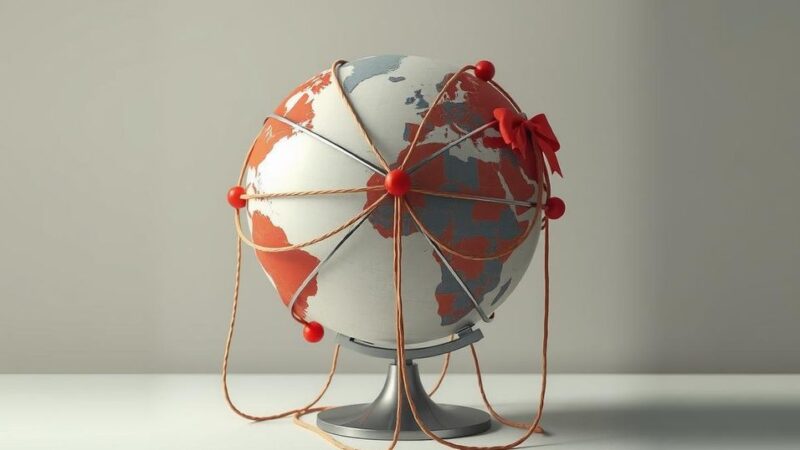This article discusses the rise in terrorist activities along the Iran-Pakistan border and examines insights from Muhammad Murtaza on fostering cooperation to combat terrorism. With both countries facing significant threats from various terrorist groups, the dialogue underscores the need for enhanced collaboration, effective intelligence sharing, and operationalizing security agreements. The influence of extra-regional actors is also considered in shaping security dynamics.
Recent data from the Encyclopedia of Terror Victims in Iran indicates that the country has suffered over 23,000 casualties due to terrorism and counter-terrorism efforts since the Islamic Revolution, positioning Iran among the world’s most affected nations, alongside Pakistan. A critical concern for Iran has been the increased incidence of terrorist activities in its southeastern region, particularly in Sistan and Baluchestan province, where attacks rose 115% in the past year, leading to a 200% increase in casualties. This province accounted for 68% of all terrorist operations in Iran over the last year.
An interview with Muhammad Murtaza, an expert on regional connectivity and security issues, sheds light on the current state of terrorism in both Iran and Pakistan. With a shared border and common threats, the discussion focused on the trends of terrorist activities and outlined strategies for effective counter-terrorism collaboration. Murtaza emphasized the need for cooperative efforts to combat terrorism that affects both nations.
Murtaza noted that Pakistan has been significantly impacted by terrorism, especially after the Taliban’s resurgence in Afghanistan. The situation has worsened since 2021, with the Tehrik-e-Taliban Pakistan (TTP) and other groups like the Balochistan Liberation Army (BLA) becoming increasingly active. In 2024 alone, Khyber Pakhtunkhwa experienced 95% of terrorist attacks, resulting in significant fatalities.
Terrorist organizations finance their operations through various means, including foreign support, charities, and criminal activities. Their financing often comes from established businesses, diaspora remittances, and informal money transfer systems like hawala. The intertwining of criminal networks with terrorist groups complicates the identification of funding sources, yet law enforcement has managed to disrupt some financing channels.
Murtaza identified obstacles to Iran-Pakistan cooperation, highlighting differing security priorities, particularly Pakistan’s focus on groups like the TTP and ISIS-Khorasan. While there exists a degree of coordination between the two countries, a shared understanding of threats and increased intelligence sharing is crucial for enhancing joint counter-terrorism efforts.
The 2014 security agreement between Iran and Pakistan was a step towards counterterrorism cooperation, but its effectiveness remains questionable. Murtaza stated that agreements must be operationalized, noting recent tensions due to reported kinetic actions on each other’s territory. Such incidents underscore the necessity of addressing mutual threats to maintain regional stability.
Extra-regional actors, including the U.S. and Saudi Arabia, have both complicated and shaped Iran-Pakistan relations. Pakistan’s diplomatic ties with these actors influence its stance on security matters, especially concerning Iran. Murtaza noted that funding from these foreign players has contributed to regional instability, suggesting that a collaborative regional approach is vital for moving forward.
In light of recent Iranian military official visits to Pakistan, Murtaza argued that bilateral cooperation across various domains—political, security, economic, and cultural—could be instrumental in mitigating terrorism in the region. Confidence-building measures are critical to fostering trust and strengthening collaboration between the two nations, which could ultimately lead to a more secure environment.
The interview emphasizes the urgency for Iran and Pakistan to enhance regional cooperation as a strategy against rising terrorism. Active engagement in joint efforts, effective intelligence sharing, and comprehensive counter-terrorism initiatives are crucial for addressing the pressing security challenges faced by both nations. Overcoming differences and seeking mutual understanding is essential for stabilizing the region.
Original Source: www.tehrantimes.com






